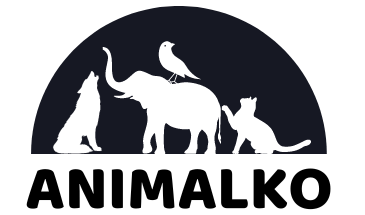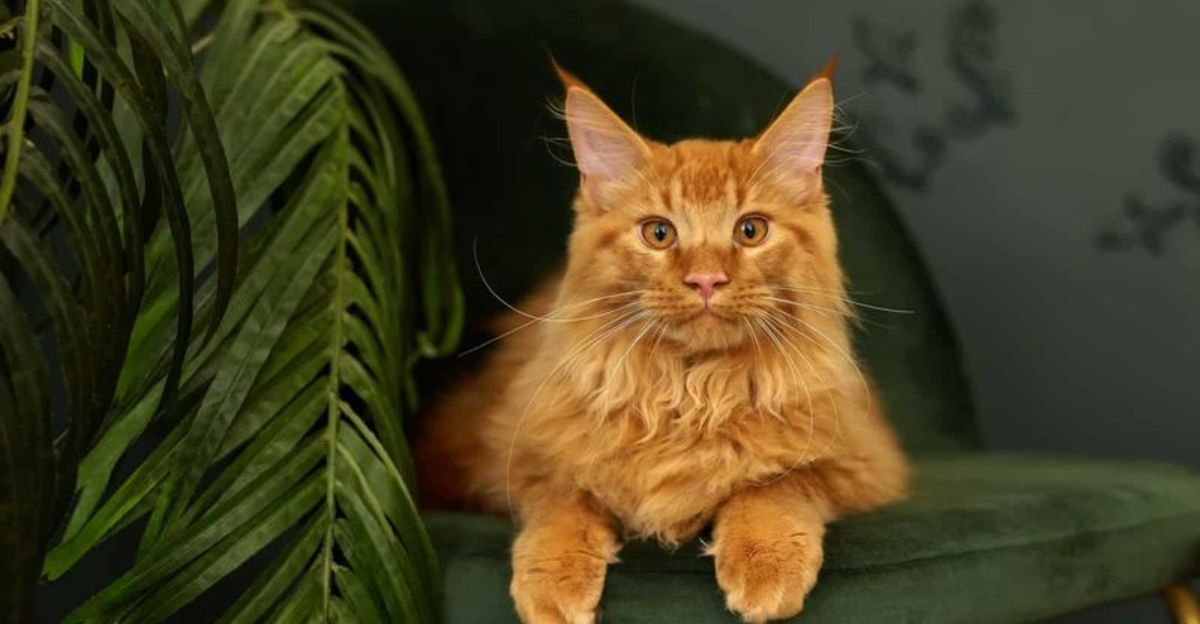Owning a Maine Coon cat can be a rewarding yet challenging experience. These majestic felines are known for their large size, playful nature, and unique personalities.
However, with these traits come certain challenges that every potential owner should be aware of. Today we’ll explore 27 giant challenges that come with owning a Maine Coon.
1. Size And Space
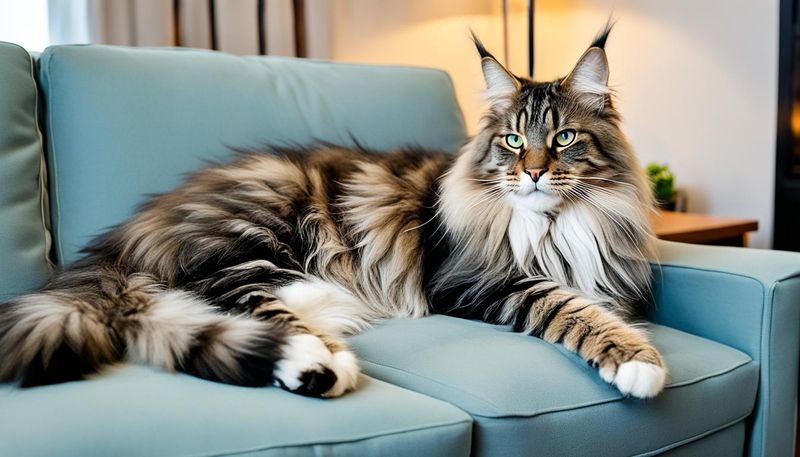
Maine Coons are one of the largest domesticated cat breeds, which means they require more space to roam around. Living in a small apartment might not be ideal for these gentle giants. Therefore, it’s essential to provide them with ample space and opportunities to explore.
Their size also demands larger litter boxes, beds, and scratching posts. Without adequate room, they can become stressed or bored, leading to behavioral issues.
Consider creating vertical spaces, like shelves or cat trees, to accommodate their love for climbing. This not only enriches their environment but also helps to utilize space efficiently.
2. Grooming Needs
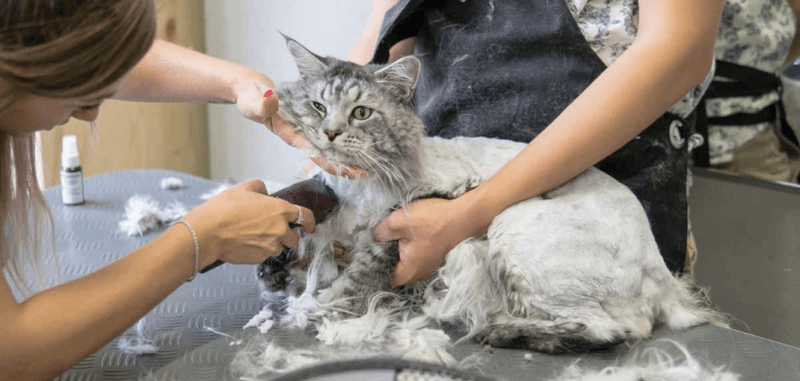
Maine Coons have long, thick fur that requires regular grooming to prevent matting and tangles. Their luxurious coats need at least weekly brushing, if not more frequently, especially during shedding seasons.
Neglecting grooming can lead to discomfort for the cat and extra cleaning for you, as loose fur ends up everywhere. It’s also a great opportunity to bond with your pet.
Invest in quality grooming tools, like a slicker brush and a steel comb, to make the process smoother. Starting grooming routines when they are kittens can help them become accustomed to regular grooming sessions.
3. Dietary Requirements
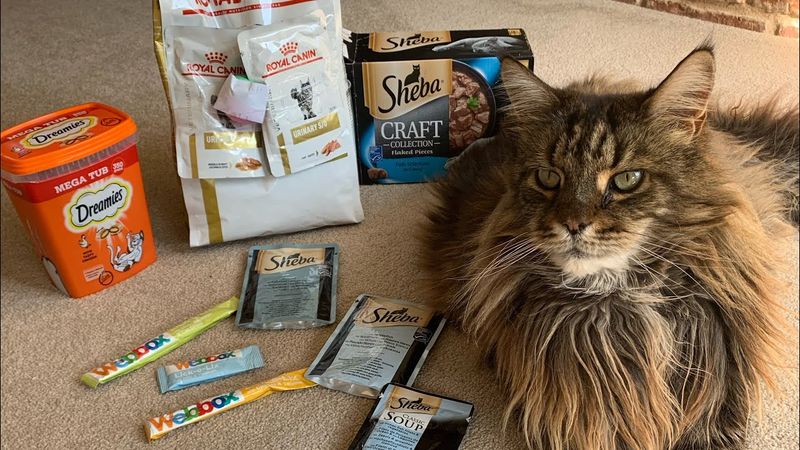
These cats have hearty appetites and specific dietary needs due to their size. Maine Coons require a diet rich in high-quality protein to support their muscle mass and energy levels.
Feeding them low-quality food can lead to health issues, including obesity and digestive problems. It’s vital to consult with a vet to tailor a diet that fits your cat’s needs.
Portion control is also crucial, as overfeeding can become a problem. Monitoring their weight and adjusting food intake accordingly helps maintain their health and vitality over time.
4. Health Issues
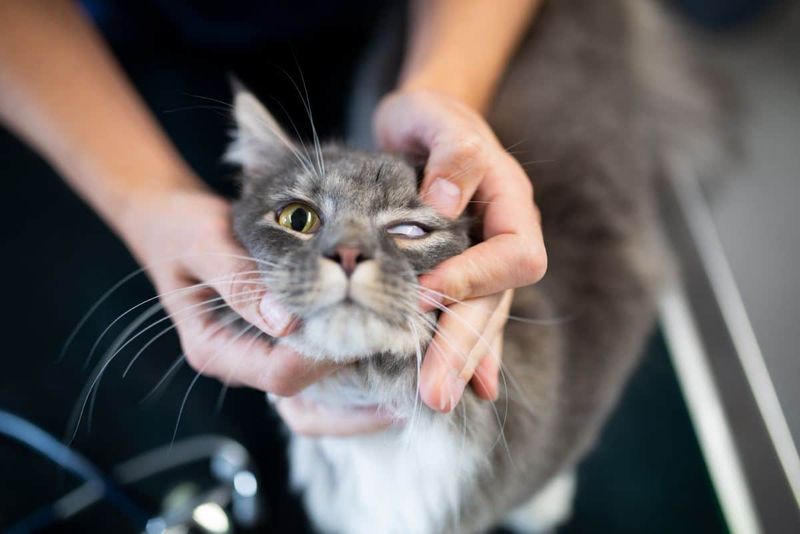
Maine Coons are generally healthy but are prone to some genetic health issues like hypertrophic cardiomyopathy (HCM) and hip dysplasia. Regular veterinary check-ups are crucial to catch any early signs of these diseases.
Be aware of symptoms like breathing difficulties or limping, and consult your vet if you notice anything unusual. Genetic testing for HCM can be an option for breeders and owners concerned about their cat’s health.
Preventive care, such as maintaining a healthy diet and regular exercise, can help manage potential health problems and ensure your Maine Coon lives a long, happy life.
5. Social Interaction
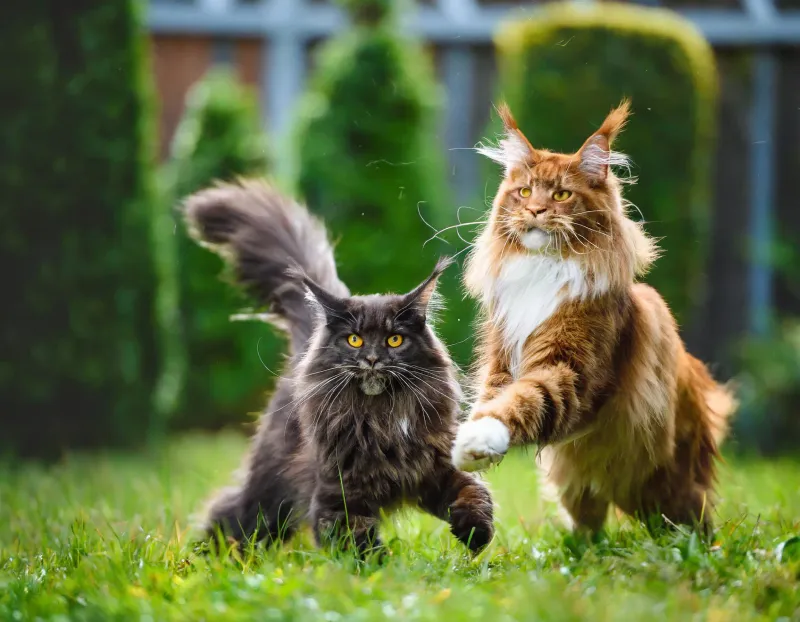
Maine Coons are sociable creatures that thrive on interaction with their human companions. They can become lonely and anxious if left alone for long periods.
Providing companionship, whether from people or other pets, is essential for their emotional well-being. Interactive play sessions help stimulate their minds and keep them entertained.
If you work long hours, consider getting a second pet or arranging a pet sitter to provide socialization opportunities. Keeping them engaged with toys and puzzles can also help alleviate boredom and prevent destructive behavior.
6. Training Challenges
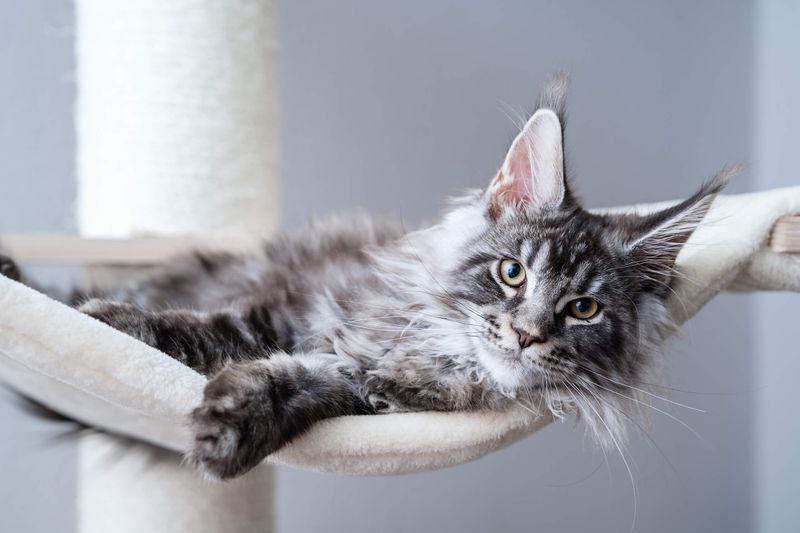
Maine Coons are intelligent and can be trained to do tricks or follow commands, but training them requires patience and consistency. Unlike dogs, cats may not always be eager to please, so motivating them with treats and positive reinforcement is key.
Begin training sessions when they are young and keep them short to maintain their interest. Focus on one command at a time to avoid confusion.
With persistence, you can teach your Maine Coon to sit, stay, fetch, and more. Training not only improves obedience but also strengthens the bond between you and your pet.
7. Cost Of Ownership
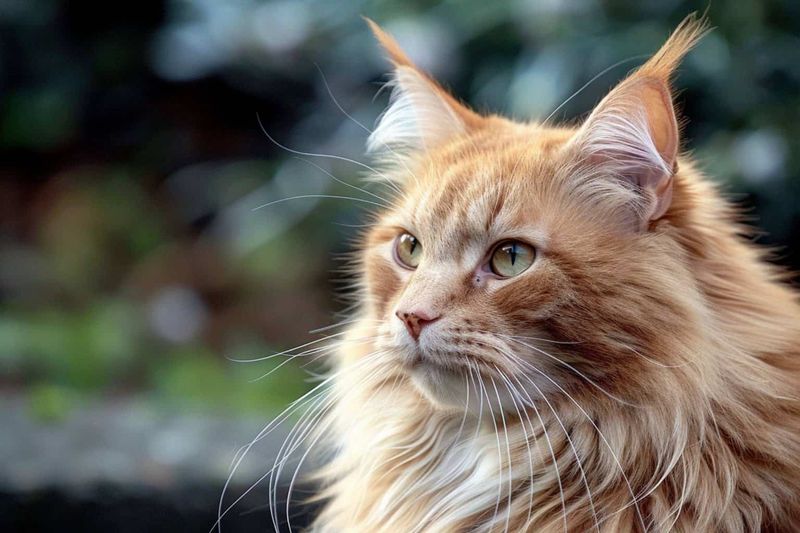
Owning a Maine Coon can be costly, considering the need for high-quality food, regular vet visits, grooming tools, and large-sized accessories. These expenses can add up quickly and should be factored into your budget.
Buying from a reputable breeder can also be expensive, but choosing a healthy, well-cared-for kitten is crucial. Additionally, consider pet insurance to help manage unexpected veterinary costs.
Be prepared for initial setup costs and ongoing expenses to ensure your Maine Coon leads a healthy, comfortable life. Financial planning and saving can ease the burden of these costs over time.
8. Shedding
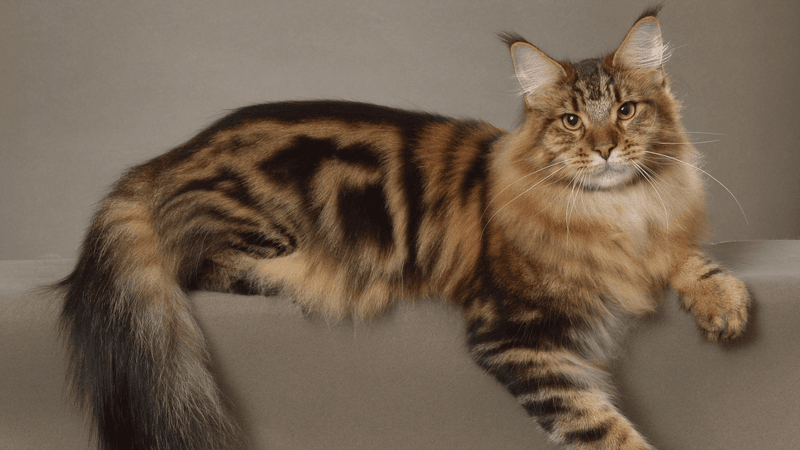
Maine Coons shed a lot, especially during seasonal changes. This means you’ll need to regularly clean your home to manage the fur that accumulates on furniture, clothes, and floors.
Frequent brushing can reduce the amount of loose fur and also minimize shedding around the house. Investing in a good vacuum cleaner designed for pet hair can make cleaning easier.
Shedding is a natural part of a cat’s life, so embracing it with the right tools and routine can help maintain a clean and fur-free environment. Regular grooming sessions also keep your cat comfortable and looking its best.
9. Vocalization
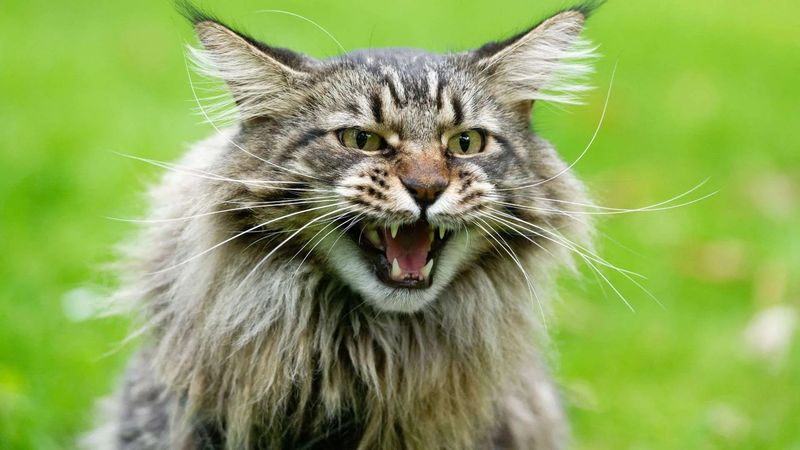
Maine Coons are known for being vocal cats. They communicate through a variety of sounds, including chirps, trills, and meows. Some owners find this endearing, while others may see it as a challenge, especially if it occurs at night.
Understanding their different vocalizations can help you respond to their needs appropriately. They might be expressing hunger, seeking attention, or alerting you to something unusual.
Training them to be quieter during certain times, such as bedtime, can help manage excessive noise. Providing enough stimulation during the day can also reduce nighttime vocalizations.
10. Temperament
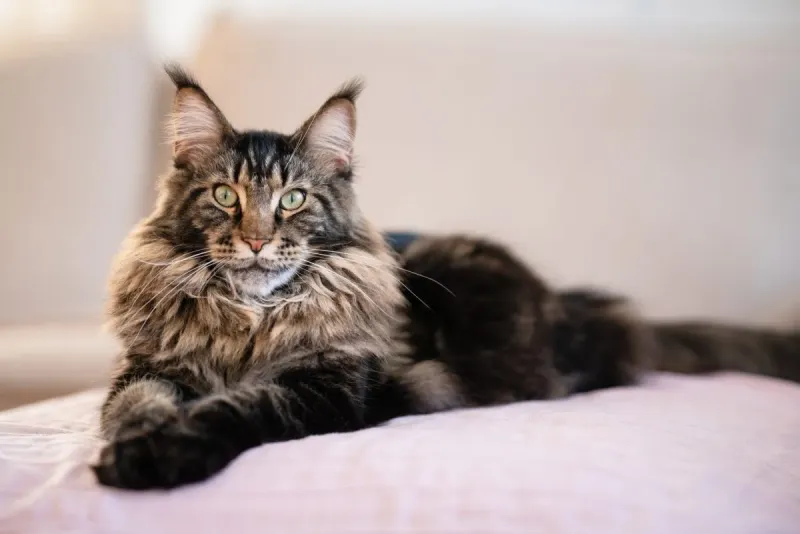
Known for their gentle temperament, Maine Coons are often called ‘gentle giants.’ However, every cat has its own personality, and some may be more assertive or shy than others.
Understanding your cat’s temperament helps you create an environment that suits their nature. Some may enjoy a bustling household, while others prefer a quieter setting.
Respecting their boundaries and providing a safe space for retreat helps them feel secure. Socialization from an early age can help develop a well-balanced temperament, making them great companions for families and other pets.
11. Activity Level
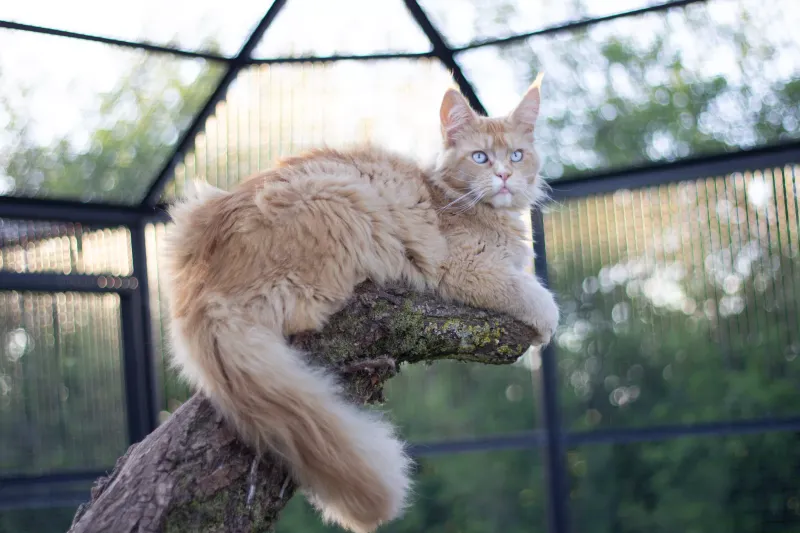
Maine Coons are active cats that enjoy playtime and exploration. They need regular physical and mental stimulation to stay healthy and happy.
Interactive toys, puzzle feeders, and daily play sessions can help channel their energy positively. Without enough activity, they may develop behavioral issues or become overweight.
Creating an enriched environment with scratching posts, climbing trees, and safe outdoor access can provide the exercise they need. Encouraging active play helps strengthen your bond and keeps your Maine Coon fit and engaged.
12. Adaptability
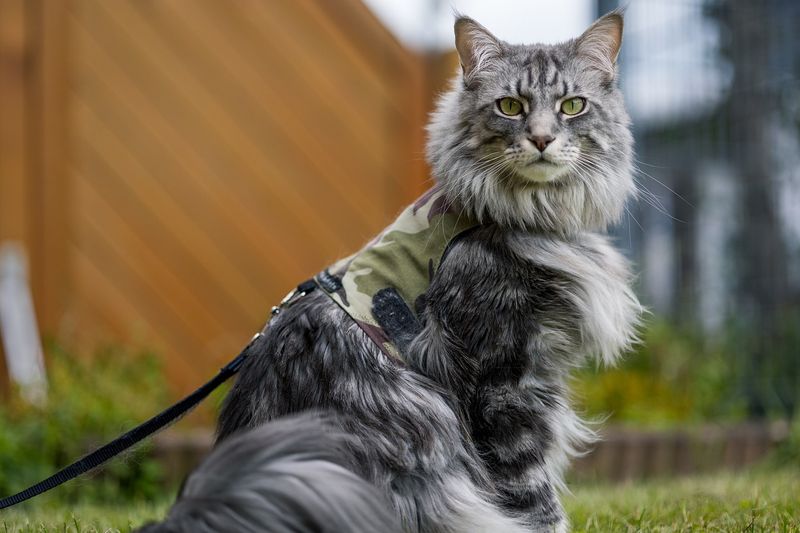
Maine Coons are generally adaptable, but changes in their environment, such as moving to a new home, can be stressful for them. Gradual introductions to new settings and routines can ease the transition.
Providing familiar items, like their favorite toys or bedding, helps them adjust to changes more comfortably. Patience and gentle encouragement are key during this process.
Observing their behavior and providing reassurance when needed can make transitions smoother. Adaptability varies among cats, so knowing your pet’s predisposition can help you manage changes effectively.
13. Lifespan
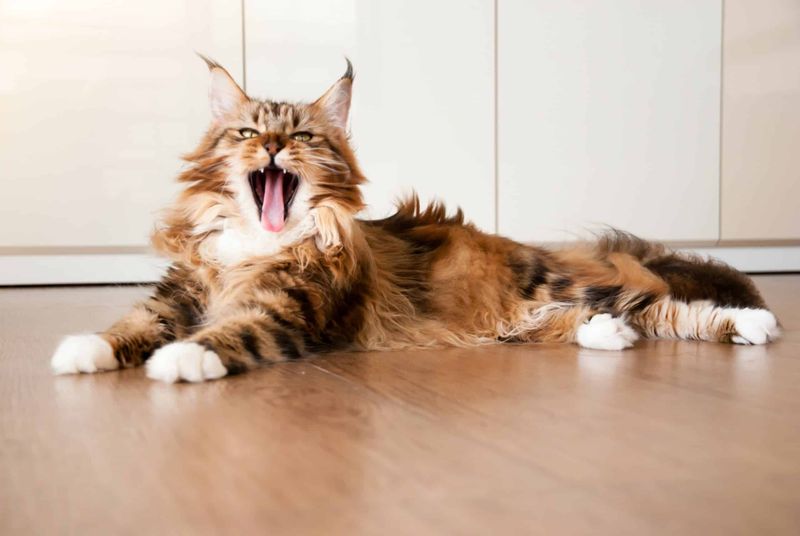
With a lifespan of 12 to 15 years, Maine Coons can be long-term companions, but this requires commitment to their health and well-being.
Regular veterinary care, a balanced diet, and an active lifestyle contribute to their longevity. Being proactive about health issues and preventive care ensures they live a full life.
As they age, adjust their care to accommodate any changes in activity level or dietary needs. Understanding the lifecycle of your Maine Coon helps you provide the best care throughout their years.
14. Territorial Behavior
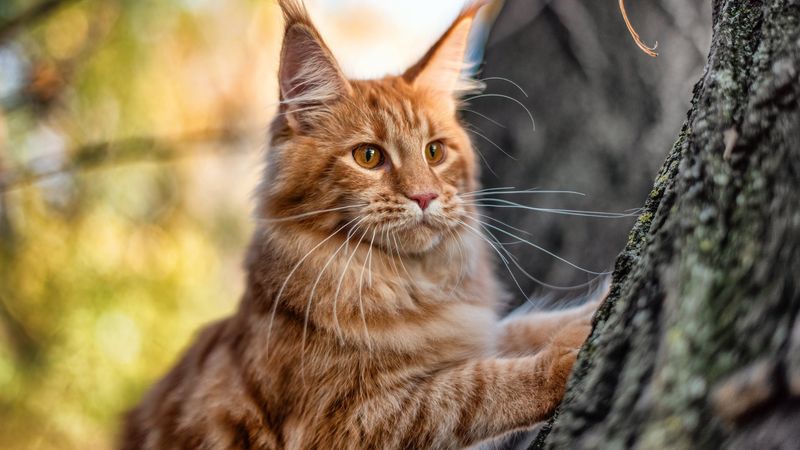
Some Maine Coons can be territorial, especially if they feel their space is being invaded by other animals. This behavior can lead to aggression or anxiety.
Recognizing the triggers that cause territorial disputes is essential in managing them. Providing enough space and resources, like litter boxes and feeding stations, can reduce tension.
Gradual introductions to new pets and maintaining a stable environment helps minimize territorial behavior. Understanding their need for personal space and respecting it helps foster a peaceful coexistence.
15. Bonding Time
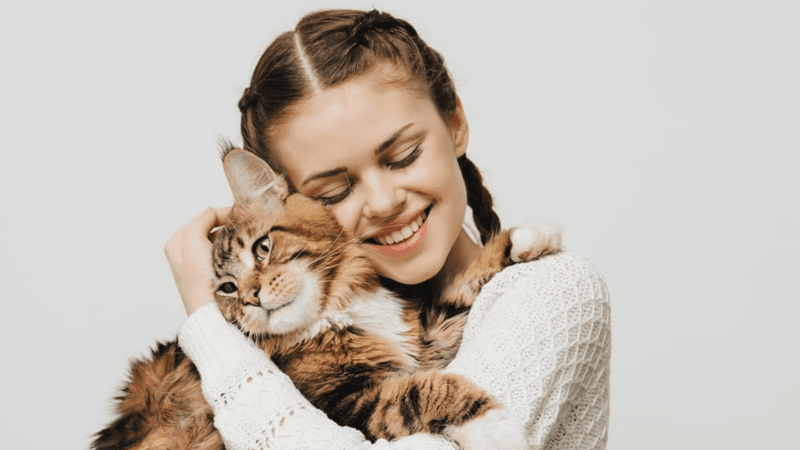
Maine Coons develop strong bonds with their owners and crave quality bonding time. Neglecting this need can lead to loneliness or behavioral problems.
Engage with them through play, grooming, or simply spending quiet time together. Building a routine that includes these interactions strengthens your relationship.
Listening to your cat and responding to their needs fosters a deeper connection. Quality time not only nurtures their emotional well-being but also enriches your life with their companionship.
16. Litter Box Maintenance
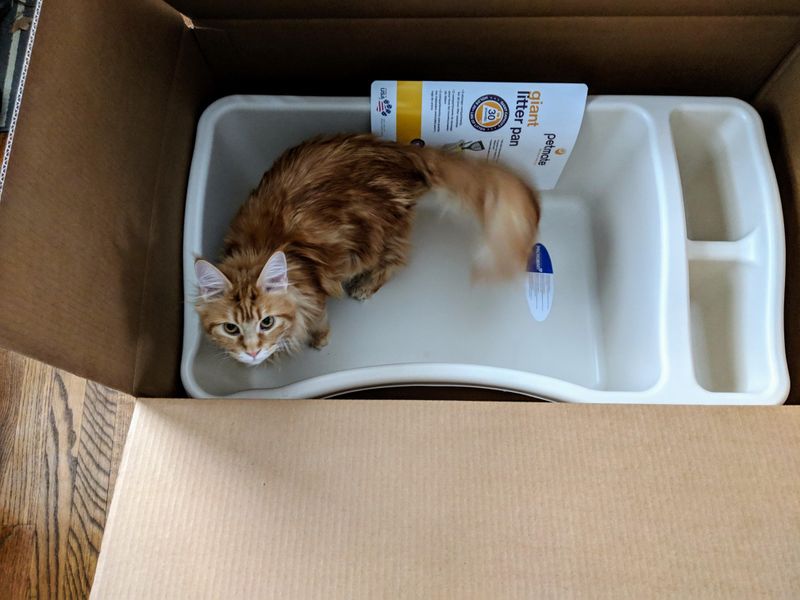
Due to their size, Maine Coons require large and sturdy litter boxes, which must be cleaned regularly to prevent odors and maintain hygiene. A dirty litter box can lead to avoidance and accidents around the house.
High-sided boxes or those with covers can help contain litter and provide privacy for your cat. Experimenting with different types of litter can help find one that your Maine Coon prefers.
Regularly scooping and maintaining the litter box ensures your cat feels comfortable using it. A clean environment reflects positively on their health and happiness.
17. Exercise Needs
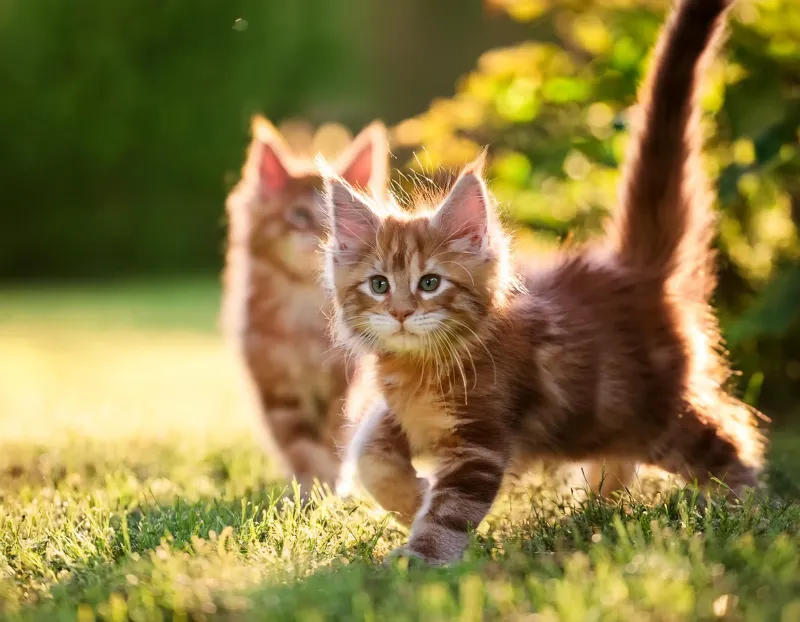
Maine Coons need regular exercise to maintain their health and prevent obesity. Engaging them with toys and interactive play sessions fulfills their physical and mental stimulation needs.
Offering safe outdoor adventures, like harness walks, can provide additional exercise and enrichment. Tailor activities to their interests, whether it’s chasing toys or climbing cat trees.
Monitoring their weight and activity levels helps ensure they get enough exercise. Encouraging an active lifestyle keeps them fit and can prevent weight-related health issues.
18. Claw Maintenance
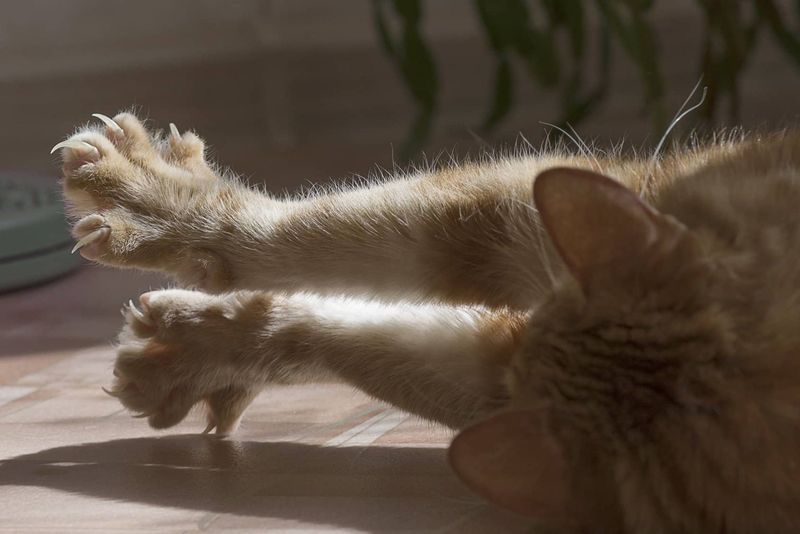
Regular claw maintenance is crucial for Maine Coons to prevent overgrowth and damage to furniture. Trimming their claws every few weeks helps maintain their health and comfort.
If you’re unsure about trimming claws yourself, consider professional grooming services. Providing scratching posts also helps them naturally wear down their claws.
Introducing claw maintenance from a young age makes it easier for them to accept this routine. Keeping their claws in check ensures both their well-being and the preservation of your home furnishings.
19. Travel Considerations
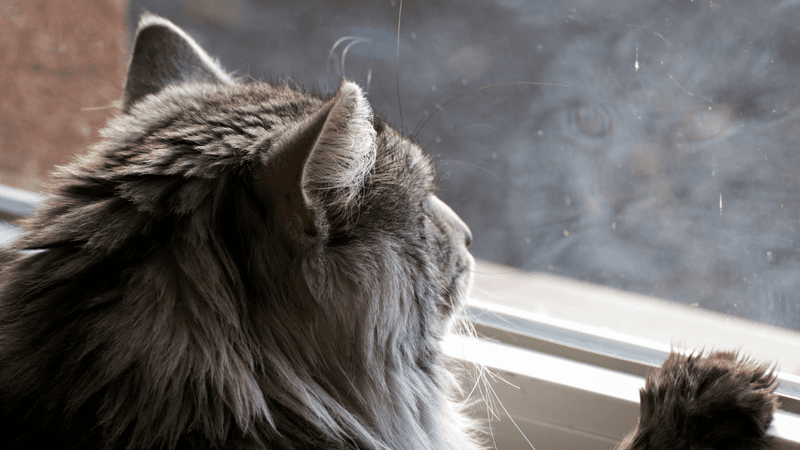
Traveling with a Maine Coon requires planning, as their size means they need a larger carrier. Ensuring they are comfortable and secure is essential for a stress-free journey.
Acclimate them to the carrier before traveling, so they associate it with safety. Bringing familiar items like toys or blankets can provide comfort during trips.
Research pet-friendly accommodations and travel guidelines to ensure a smooth experience. Being prepared and patient can make traveling with your Maine Coon an enjoyable adventure for both of you.
20. Child-Friendly
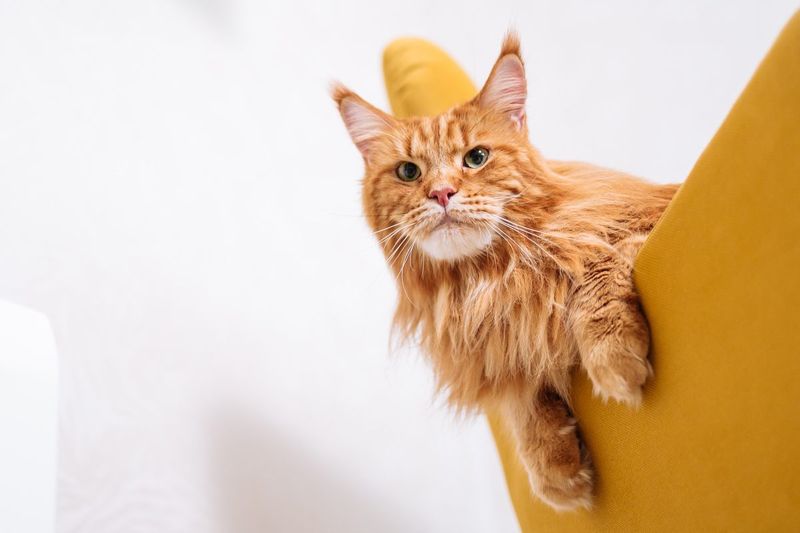
Maine Coons are generally good with children, known for their patience and gentle nature. However, teaching kids to respect the cat’s space and handle them gently is crucial.
Supervised interactions ensure both the cat and children have positive experiences. Educating kids on how to properly pet and play with pets fosters a respectful relationship.
These cats can become great companions for children, but setting boundaries is essential to prevent accidents or stress for both the cat and the kids. Encouraging mutual respect leads to a harmonious household.
21. Pet Compatibility
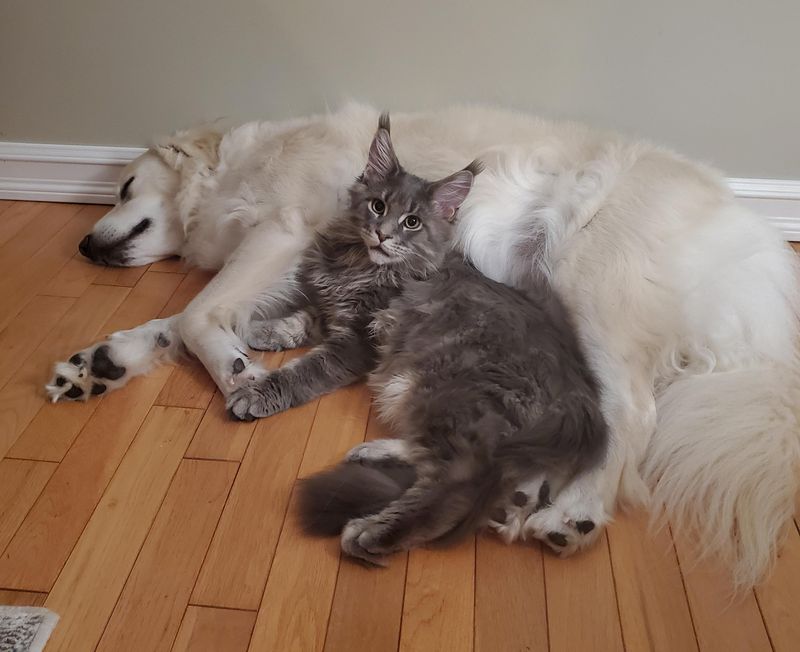
Maine Coons are often compatible with other pets due to their friendly and adaptable nature. However, introductions should be handled gradually to ensure everyone feels safe.
Observing their interactions and intervening if necessary helps prevent conflicts. Providing separate spaces and resources for each pet reduces competition and stress.
Once comfortable, Maine Coons often enjoy the companionship of other animals. Encouraging positive interactions through shared playtime helps build a peaceful multi-pet home. Understanding each pet’s personality ensures coexistence is beneficial for all.
22. Independence

While Maine Coons enjoy social interactions, they also appreciate their independence. Understanding this balance is key to a harmonious relationship.
Allowing them alone time to explore and engage in solitary activities respects their need for independence. Providing a safe environment with plenty of enrichment options can prevent boredom.
Recognizing signs of when they seek attention versus when they prefer solitude helps you respect their boundaries. This balance fosters trust and contentment in your Maine Coon’s life.
23. Personality Diversity
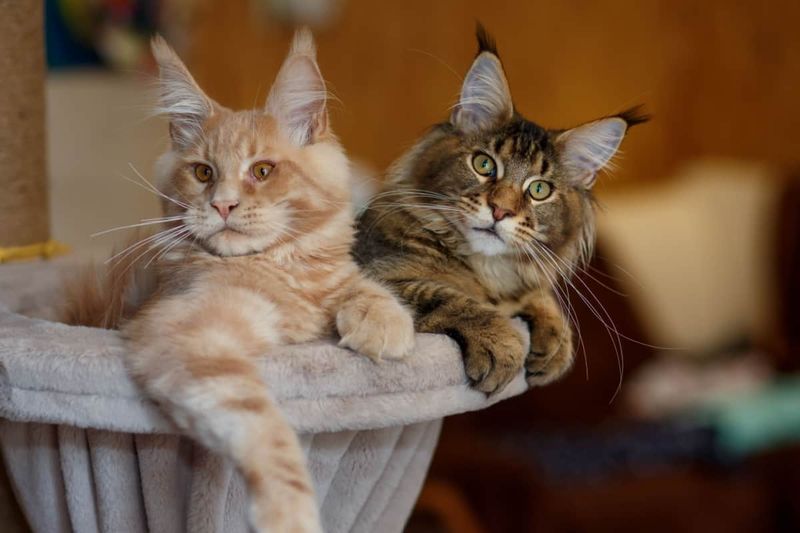
Maine Coons are known for their diverse personalities, ranging from outgoing and playful to reserved and independent. Understanding your cat’s unique personality helps tailor your approach to care and interaction.
Observing their behavior and preferences allows you to provide an environment that suits their individual needs. Some may enjoy active play, while others prefer quiet companionship.
Celebrating their unique traits and adapting to their personality enhances your bond. Being patient and understanding fosters a deep connection, making life with your Maine Coon a rewarding experience.
24. Outdoor Access
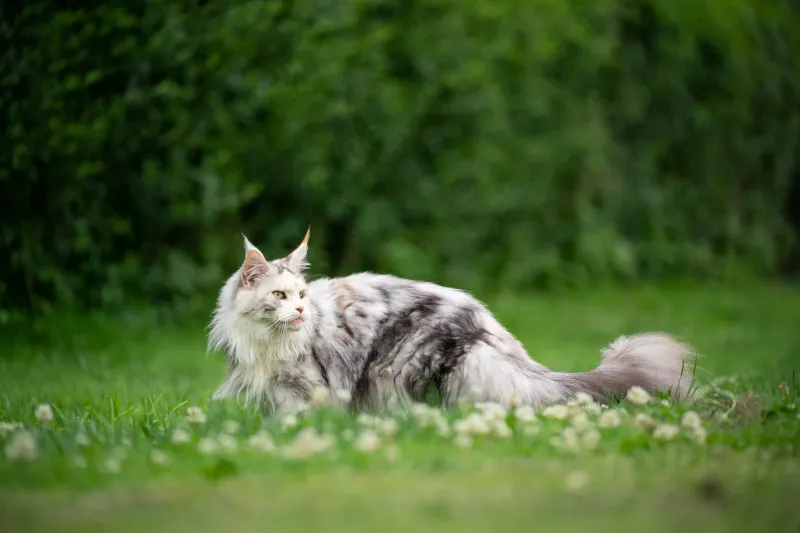
Providing outdoor access can be beneficial for Maine Coons, offering them enrichment and exercise. However, ensuring their safety is paramount, as outdoor risks include traffic and predators.
Fenced gardens or secure enclosures provide a safe outdoor space for them to explore. Supervised outings with harnesses can also offer safe outdoor experiences.
Balancing outdoor access with safety measures ensures they enjoy the benefits of nature without unnecessary risks. Regular monitoring and adapting to your environment’s specific challenges keep your Maine Coon secure.
25. Noise Sensitivity
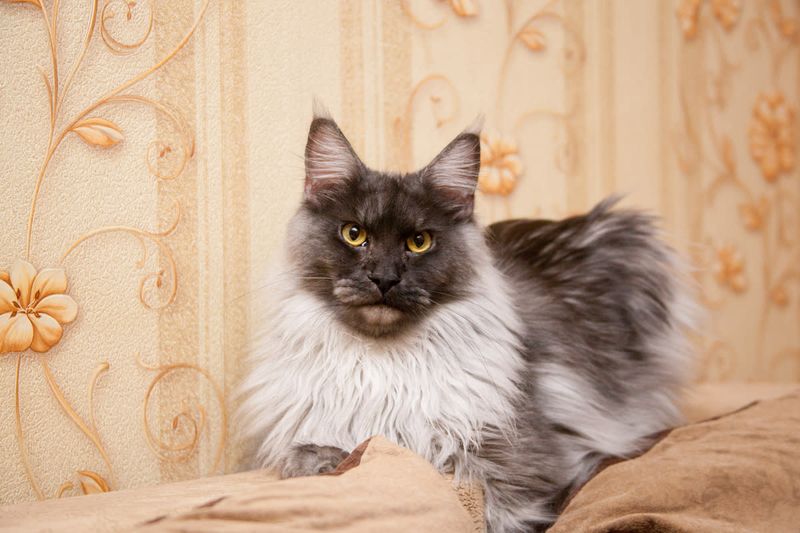
Some Maine Coons can be sensitive to loud noises, which may cause stress or anxiety. Identifying and minimizing exposure to these triggers can help maintain their comfort.
Creating a quiet retreat with cozy bedding and toys offers a sanctuary during noisy events. Providing background noise, like soft music, can also help mask unsettling sounds.
Understanding their sensitivity and adapting your environment supports their well-being. Being mindful of noise levels and offering comfort helps them feel secure and relaxed.
26. Food Allergies
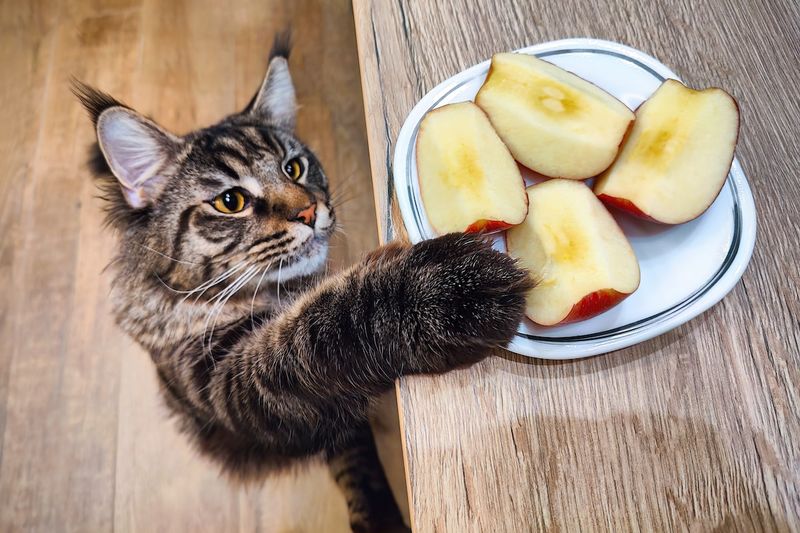
Maine Coons, like any other breed, can have food allergies that require special diets. Identifying allergens through veterinary consultation helps tailor a diet that suits them.
Common symptoms include skin issues, gastrointestinal problems, or changes in behavior. Switching to hypoallergenic or novel-protein diets can alleviate these reactions.
Regular monitoring and working closely with your vet ensures their dietary needs are met without compromising their health. Awareness and proactive management of food allergies ensure your Maine Coon thrives.
27. Water Affinity
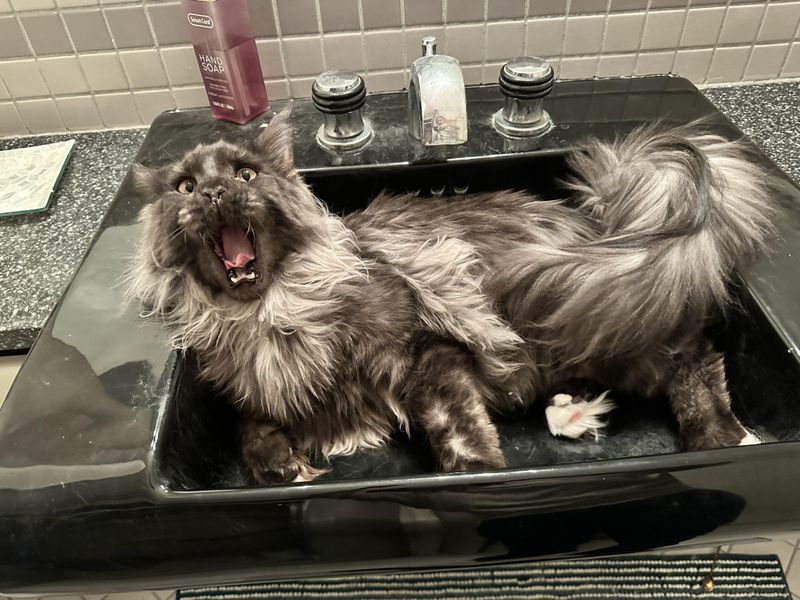
Maine Coons are often fascinated by water, exhibiting behaviors like playing with water dishes or joining you in the bathroom. This interest can be entertaining but also messy.
Providing water fountains or shallow dishes can satisfy their curiosity while minimizing spills. Understanding this trait allows you to create a water-friendly environment.
Embracing their love for water adds to the unique experience of owning a Maine Coon. Encouraging safe water play ensures they enjoy this interest without creating havoc in your home.
